K-5 English Instruction
The NNPS Elementary English curriculum utilizes evidence-based literacy instructional practices aligned to the science of reading to foster student growth towards and achievement of the Virginia Standards of Learning in kindergarten through fifth grade. In the primary years (kindergarten through second grade), instruction is focused on establishing strong foundational skills as students learn to read and write. In upper elementary (grades three through five), lessons shift to be centered around providing experiences for students to read to learn and write to communicate.
Click the icons below to learn more about our curriculum, instruction, assessments, and interventions.
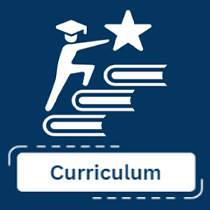
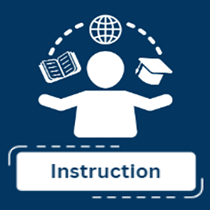
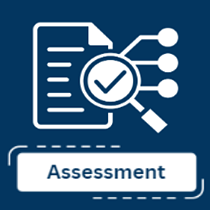
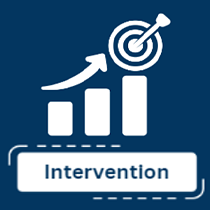
Curriculum
Our K-5 curriculum is aligned to the 2024 Virginia Standards of Learning and instruction is provided using Benchmark Advance, a state-approved high-quality instructional resource.
Each grade-level’s curriculum includes 8 or 9 rigorous instructional units that utilize grade level texts to develop literacy skills and build students’ knowledge across a variety of science and social studies topics.
The links below are grade-specific curriculum storyboards that provide all stakeholders (teachers, families, and community members) an overview of the grade-level subject or course and tell an engaging story of the learning students will engage in.
Instruction
High-Quality Instructional Materials
The Virginia Literacy Act requires each school division to provide evidence-based literacy instruction aligned with science-based reading research using approved high-quality instructional materials. NNPS has adopted the following core and supplemental instructional materials to meet this requirement:
Core Instruction

Benchmark Advance© 2022
Benchmark Advance© 2022 is a state-approved, high-quality instructional program used within our kindergarten through fifth grade classrooms. It is aligned to the science of reading and evidence based instructional practices in that it provides a systematic and sequential approach to developing strong literacy skills and building knowledge on a wide-range of topics.
Supplemental Instruction
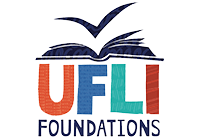
University of Florida Institute (UFLI) Foundations
In kindergarten through second grade, teachers provide supplemental phonics lessons following the UFLI Foundations program, an explicit and systematic program that teaches the necessary foundational skills to become proficient readers.

Newsela
In third through fifth grade, teachers can supplement texts used within the units with additional reading material from Newsela's library. This resource provides high-quality texts from various genres and themes offered at multiple Lexile levels, which encourages differentiated instruction.
Instructional Models
The English instructional block incorporates all components of literacy and is divided into whole group reading, whole group writing, and differentiated small group instruction.
Assessment
NNPS utilizes a balanced assessment model in order to collect data to set student goals and determine specific and targeted next steps to accelerate learning. Each grade-level model includes state approved diagnostic and summative assessments.

- Virginia Language and Literacy Screening System (VALLSS)
- UFLI Foundations Progress Monitoring (Phonics)
- Benchmark Advance Assessments
- End-of-Unit Writing
- Virginia Language and Literacy Screening System (VALLSS) *Grade 3 only
- Virginia’s Growth Assessments and Standards of Learning (SOL) Assessment
- Integrated Reading and Writing Assessment *Grade 5 only
- Benchmark Advance Assessments
- End-of-Unit Writing
Intervention
Data is monitored and analyzed frequently to identify students who may need additional instruction to meet grade-level expectations. Targeted instruction is provided to identified students in small groups using approved programs. This instruction can be provided by a classroom teacher, interventionist, reading specialist, trained instructional assistant or tutor, computer program, or any combination of providers.
High-Quality Instructional Materials
The Virginia Literacy Act requires each school division to provide evidence-based literacy instruction aligned with science-based reading research using approved high-quality instructional materials. NNPS has adopted the following intervention programs to meet this requirement:
*This intervention program is also utilized for Specially Designed Instruction in addition to “Finger Spelling Our Way to Reading,” “Bedrock Literacy,” and “Steps to Advance.”
Intervention

Lexia Core5 Reading*
Core5 is a computer-based, adaptive program that provides explicit instruction, guided practice, immediate feedback, and skills checks for all required areas for strong reading, including phonological awareness, phonics, structural analysis, fluency, vocabulary, and comprehension.
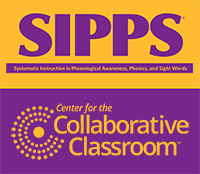
Systematic Instruction in Phonological Awareness, Phonics, and Sight Words (SIPPS)
This research-based foundational skills program focuses on developing the accuracy and automaticity within phonological awareness, phonics, and sight words that is essential for fluent, independent reading.
*This intervention program is also utilized for Specially Designed Instruction in addition to "Finger Spelling Our Way to Reading," "Bedrock Literacy," and "Steps to Advance."
Student Reading Plans
All students in grades K-3 that are identified as high-risk during the fall administration of the VALLSS assessment require a student reading plan. These plans will outline how each student’s literacy needs is being addressed during the child’s required 2.5 hours of additional literacy instruction as outlined by the VDOE’s Early Intervention Reading Initiative (EIRI). Families are encouraged to contact their child’s classroom teachers and school reading specialists to learn more about reading plans.







